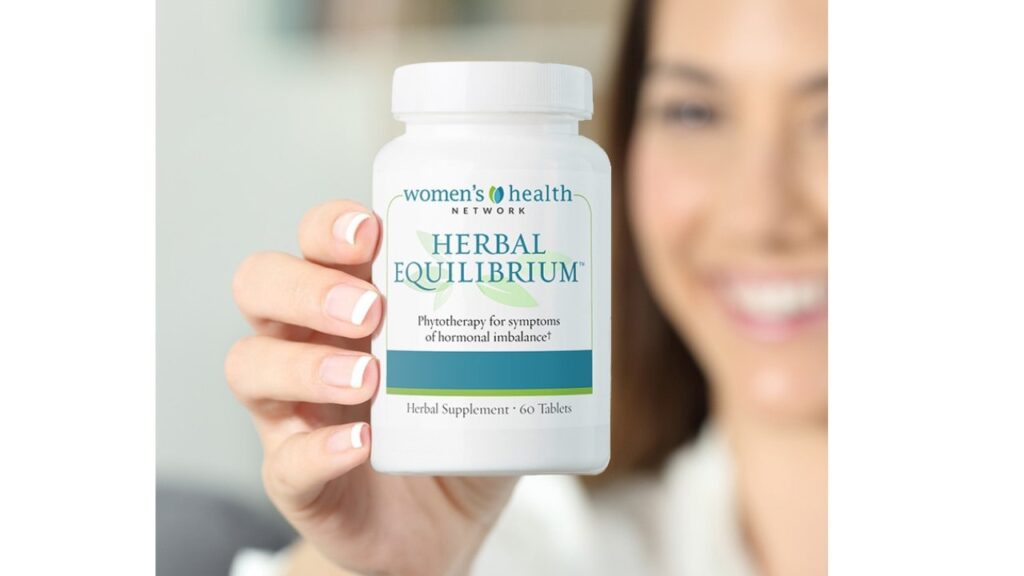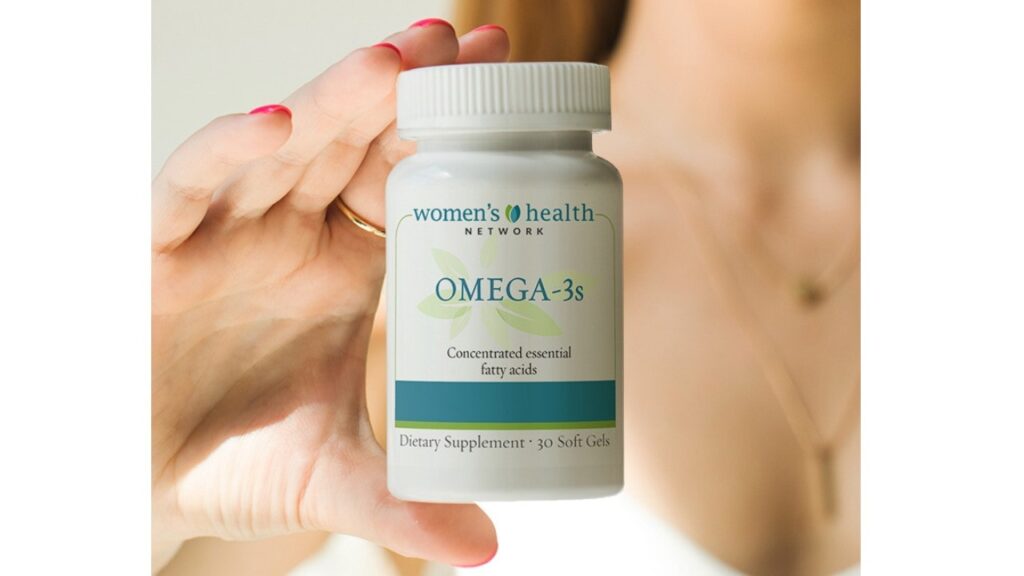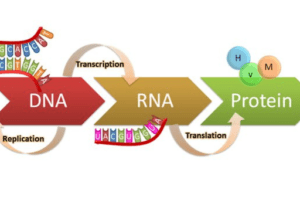Hormones, the chemical messengers coursing through our bodies, play a crucial role in everything from metabolism and mood to sleep and reproduction.
When these messengers fall out of sync, a hormonal imbalance can occur, leading to a frustrating array of symptoms. This article aims to equip you with the knowledge to navigate the complexities of hormonal health, explore natural solutions, and understand when to seek professional guidance.
Frustrated by Symptoms? Understanding Hormonal Imbalance
Weight gain, fatigue, mood swings, irregular periods, difficulty losing weight, and decreased libido – these are just a few of the disruptive symptoms that can arise from hormonal imbalances. Fluctuations are normal throughout life, particularly during puberty, menstruation, pregnancy, menopause, and aging. However, persistent or severe symptoms can be a sign of an underlying issue.
What are the Common culprits behind hormonal imbalances?
Endocrine disorders
Conditions like Polycystic Ovary Syndrome (PCOS), thyroid disorders, and Cushing’s syndrome can disrupt hormone production.
Chronic stress
The stress hormone cortisol can wreak havoc on your hormonal balance, impacting everything from sleep to metabolism.
Diet and lifestyle
Unhealthy eating habits, lack of sleep, and insufficient exercise can all contribute to hormonal imbalances.
Environmental toxins
Exposure to environmental toxins like pesticides and BPA can disrupt hormone function.
How They can Truly Balance Hormones The Allure of Supplements?

The internet brims with information on supplements promising to solve all your hormonal woes. While some supplements may offer targeted support, they are not a magic bullet and can’t treat underlying medical conditions.
What to consider when evaluating supplements for hormonal balance?
Safety and efficacy
Not all supplements are created equal. Research the specific supplement, its potential side effects, and any drug interactions.
Addressing the root cause
While some supplements may alleviate symptoms, they won’t address the underlying hormonal imbalance. Focus on dietary and lifestyle changes that can create a more balanced hormonal environment.
Supplements for Specific Concerns:
PCOS
Supplements like inositol, chromium, and berberine may show promise in managing PCOS symptoms, but consult your doctor before starting them.
Menopause
Black cohosh, evening primrose oil, and flaxseed may provide some relief from hot flashes and night sweats. However, discuss the risks and benefits with your doctor.
Fertility
Supplements like folic acid, vitamin D, and omega-3 fatty acids can support overall health and fertility, but consult a healthcare professional before starting any new supplements while trying to conceive.
Low Testosterone
While some natural remedies are marketed for boosting testosterone, their effectiveness remains unproven. A doctor can assess if testosterone replacement therapy is the right approach for you.
Mood Swings and Fatigue
Vitamin B complex and adaptogenic herbs like Ashwagandha may offer some support, but it’s important to rule out other potential causes of these symptoms.
If you suspect a hormonal imbalance, it’s crucial to consult a doctor for a proper diagnosis and treatment plan.
How to Find Reliable Information and Effective Solutions?
Navigating the world of hormonal health can be overwhelming. Here are some tips to help you find reliable information and effective solutions:
Consult a qualified healthcare professional
A doctor can assess your specific situation, order appropriate tests, and create a personalized treatment plan that may include medication, dietary and lifestyle changes, and potentially safe and effective supplements.
Seek out reputable sources
Look for information from trusted medical organizations, universities, or government health agencies. Be wary of websites selling miracle cures or promoting unproven remedies.
Focus on a holistic approach
Consider a multi-pronged approach that addresses diet, exercise, stress management, and sleep hygiene alongside any prescribed treatments or supplements.
What are the Natural Solutions for Hormonal Balance to Empower Yourself?
While supplements may play a supporting role, true hormonal balance starts from within. Here are some natural steps you can take to create a healthy hormonal environment:
How to do a balanced diet?
⟶ lean protein
⟶ Vegetables,
⟶ healthy fats,
⟶ Limit sugary drinks,
⟶ Nourish your body with whole,
⟶ unprocessed foods rich in fruits.
⟶ processed foods, and unhealthy fats.
Manage stress: Chronic stress disrupts hormonal balance.
Maintaining a healthy weight helps reduce your risk of various health problems
Why Supplements Aren’t the First Step?
While some supplements may offer targeted support, they’re not a one-size-fits-all solution for hormonal imbalances.
Diagnosis is Key
There are several reasons why your hormones might be out of whack. A doctor can diagnose the underlying cause, whether it’s a thyroid issue, PCOS, or simply a dietary imbalance. Supplements can’t address the root problem.
Safety First
Not all supplements are created equal. It’s important to be aware that some supplements may interact with medications or cause unexpected side effects. Consulting a doctor ensures you’re taking safe and suitable options.
The Bigger Picture
A doctor can assess your overall health and create a personalized treatment plan. This might include medication, dietary changes, exercise recommendations, and potentially some supplements as part of a holistic approach.
So, What Can You Do Until You See a Doctor?
While supplements might not be the first answer, there are steps you can take to feel better:
Track Your Symptoms
Keeping a journal of your symptoms – frequency, severity, and any potential triggers – can provide valuable information for your doctor.
Focus on the Basics
Prioritize a healthy diet rich in fruits, vegetables, whole grains, and lean protein. Manage stress, get enough sleep (7-8 hours), and aim for regular exercise. These lifestyle changes can significantly impact hormone health.
Research Reputable Sources
Learn about hormonal imbalances from trusted medical organizations or government health websites. Be wary of miracle cures or unproven remedies advertised online.
How to Support Your Journey, Fertility, Supplements, and a Healthy Balance?

Trying to conceive is an exciting yet often stressful time. When the journey takes longer than expected, it’s natural to explore all avenues to support fertility. Supplements promising to “balance hormones” flood the market, but are they the key to unlocking pregnancy? Let’s delve into the world of fertility supplements and explore other ways to optimize your chances of conceiving naturally.
Supplements and Fertility: A Supportive Role, Not a Magic Bullet
There’s some truth to the idea that certain supplements can play a supportive role in fertility. However, it’s crucial to remember they’re not a magic bullet and won’t address underlying fertility issues. Here’s what you need to know:
Essential Nutrients for Overall Health
Certain vitamins and minerals are crucial for overall health and indirectly support a healthy reproductive system. Folic acid, vitamin D, and omega-3 fatty acids are some examples. These are often recommended pre -conception to ensure your body has the building blocks it needs for a healthy pregnancy.
Targeted Support for Specific Needs
Some supplements may address specific concerns. For instance, women with PCOS may benefit from inositol, while those with irregular ovulation might find CoQ10 helpful. However, these are best discussed with a doctor who can assess your individual needs.
Limited Research and Individual Variability
The research on specific fertility supplements is ongoing, and results can be mixed.
Before You Start Popping Pills:
Consult Your Doctor
Get a pre-conception checkup to rule out any underlying issues that might be impacting your fertility. Your doctor can assess your individual needs and recommend any safe and appropriate supplements based on your health history.
Consider the Root Cause
Supplements might help bridge nutritional gaps, but addressing the root cause of any fertility issues is crucial. Your doctor can help identify and address underlying imbalances.
How to Optimize Your Fertility Naturally?
Beyond supplements, several lifestyle changes can significantly improve your chances of conceiving naturally:
Healthy Diet
Nourish your body with whole, unprocessed foods rich in fruits, vegetables, whole grains, and lean protein. Fuel your fertility! A balanced diet delivers key nutrients for a healthy reproductive system.
Healthy Weight
Maintaining a healthy weight range can positively impact fertility. Consult your doctor for personalized weight management advice.
Regular Exercise
Move your body most days! Aim for moderate-intensity exercise. Exercise helps regulate hormones and promotes overall health and well-being.
Stress Management
Chronic stress can negatively impact fertility. Find your calm! Yoga, meditation, or deep breathing can be powerful tools to combat stress.
Adequate Sleep
Aim for 7-8 hours of quality sleep each night. Sleep deprivation can disrupt hormone production and impact fertility.
Limit Alcohol and Caffeine
Excessive alcohol and caffeine consumption can negatively impact fertility. Discuss healthy limits with your doctor.
Supplements can be a helpful tool on your fertility journey, but they should be used under the guidance of a healthcare professional and as part of a holistic approach. By prioritizing healthy habits and getting expert advice, you can create a foundation for a healthy pregnancy.
Why Supplements Demand Caution?

Unlike prescription medications, supplements aren’t subject to rigorous FDA testing for safety and efficacy.
Unforeseen Side Effects
Supplements can have unintended consequences, ranging from mild digestive discomfort to potentially dangerous interactions with your existing medications. It’s crucial to understand potential side effects before introducing anything new into your system.
Contamination Concerns
The risk of contamination with harmful substances like heavy metals or bacteria lurks. Opting for reputable brands with third-party certifications for quality control can offer peace of mind.
Dosage Dilemmas
Taking too much of a seemingly harmless supplement can be detrimental. Always adhere to recommended dosages and consult a doctor before exceeding them.
How to Separate Fact from Fiction Effectiveness?
Marketing claims often paint supplements as miracle cures, but the reality is often less glamorous. Here’s why effectiveness can be a question mark:
What works wonders for your friend might not be a magic bullet for you. Your unique body chemistry, existing health conditions, and other factors can influence how a supplement interacts with your system.
Many supplements haven’t undergone extensive clinical trials to definitively prove their effectiveness for specific conditions. This leaves us with a gap in knowledge regarding their true impact.
Taking the wrong dosage can render a supplement completely ineffective. Consulting a doctor to determine the appropriate dosage for your needs is crucial for maximizing potential benefits.
When Supplements Can Be a Supportive Ally?
Despite the concerns, supplements can be a valuable tool when used strategically:
Bridging Nutritional Gaps
If you have dietary deficiencies, certain supplements can help fill the void and ensure you’re getting essential nutrients. For instance, folic acid is crucial for women trying to conceive.
Targeted Support
Under a doctor’s guidance, some supplements can offer targeted support for specific conditions. Vitamin D supplementation can be beneficial if you have a deficiency.
Holistic Approach
Supplements, when combined with a healthy diet, regular exercise, and stress management, can contribute to overall well-being.
Doctor Consultation is Key
Before starting any supplement, talk to your doctor. They can assess your individual needs, identify potential interactions with existing medications, and recommend safe and appropriate options.
Research is Your Weapon
Seek information from reputable sources like government healthcare websites or trusted medical organizations. Evaluate the research behind the supplement you’re considering to make informed decisions.
Quality Matters
Choose high-quality supplements from established brands known for their commitment to purity and safety. Look for third-party certifications on the label for added assurance.
Begin with a low dose to monitor for any side effects. Gradually increase the dosage if needed under your doctor’s supervision.
Beware of Miracle Cures: Avoid unrealistic claims and understand that supplements are not a quick fix for health concerns. A healthy lifestyle remains paramount.
Supplements can be a complementary tool for your health journey, but prioritize safety and consult your doctor before incorporating them into your routine. By remaining cautious, researching effectively, and prioritizing a healthy lifestyle, you can make informed decisions about supplements and empower yourself on your path to optimal health.
FAQs about Balancing Hormones
What are hormonal imbalances and what symptoms do they cause?
Hormonal imbalances occur when the chemical messengers in your body are out of sync. Symptoms can include weight gain, fatigue, mood swings, irregular periods, and decreased libido.
Can supplements truly balance hormones?
Maybe to some extent, but they’re not a magic bullet. Focus on a holistic approach that addresses diet, exercise, stress, and sleep first. Consult a doctor for personalized advice.
When should I see a doctor about hormonal imbalances?
If you experience persistent or severe symptoms, see a doctor to diagnose the underlying cause and create a treatment plan.
Are there any safe and effective supplements for hormonal imbalances?
Some supplements may offer targeted support, but consult a doctor to discuss safety, potential side effects, and interactions with medications. Examples include inositol for PCOS and folic acid for fertility.
Should I take supplements before seeing a doctor?
It’s best to consult a doctor first. They can diagnose the root cause of your hormonal imbalance and recommend appropriate treatment, which may include safe and effective supplements.
How can I choose high-quality supplements?
Look for reputable brands with third-party certifications for quality control. Be wary of online claims and miracle cures.
What are some natural ways to support hormonal balance?
Eat a balanced diet, prioritize sleep, manage stress, exercise regularly, and maintain a healthy weight.
Can improving my lifestyle help even before seeing a doctor?
Absolutely! Prioritizing a healthy lifestyle can significantly improve hormone health.
Do fertility supplements guarantee pregnancy?
No, they are not a magic bullet. Certain supplements can support overall health and fertility (like folic acid), but consult a doctor before starting any.
What are some natural ways to improve my chances of conceiving?
Maintain a healthy weight, eat a balanced diet, exercise regularly, manage stress, get enough sleep, and limit alcohol and caffeine.







